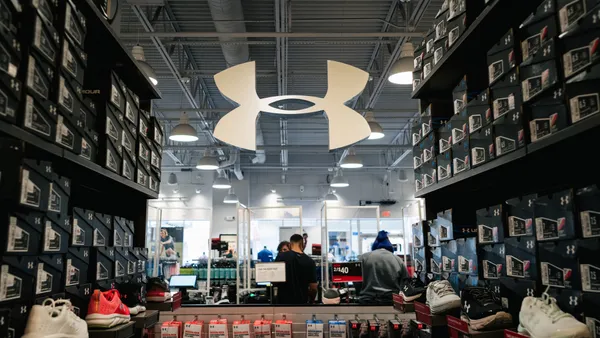Dive Brief:
- Over a third of U.S. back-to-school shoppers plan to only buy items on sale (37%), shop earlier (37%) or reuse items from previous years (34%) to stretch their budgets, according to a PwC survey of nearly 1,200 parents released Monday.
- For those trying to save money, shoppers said they are pulling back spending on technology (44%) and clothing (40%), while school supplies (30%) and books and education materials (26%) are seen as more essential.
- A fifth of back-to-school shoppers anticipate using AI tools to find online discounts, according to the survey.
Dive Insight:
Even as tariffs drive up prices on some imported goods, parents are preparing for the back-to-school shopping season. Nearly three in four respondents said they anticipate spending the same or more on those product purchases this fall, but over a third of parents expect to spend more than they did last year, according to PwC.
Prioritizing discounts is a way many consumers plan to save, just as retailers are rolling out summer sales. Amazon recently announced their Prime Day event will be extended to four days, while Walmart and Target are launching competing sales that emphasize back-to-school savings.
In addition to being selective in their purchasing decisions, some consumers are starting their seasonal shopping now. A recent TeacherLists survey found that almost a quarter (22.1%) of respondents had already begun their back-to-school shopping in June, up from 11% in 2024.
The use of AI to find deals indicates that everyday consumers are becoming more comfortable with the technology, PwC said. As people increasingly turn to AI for their shopping needs, companies are adapting their products to simplify the shopping process. OpenAI introduced updates to its shopping queries in ChatGPT in May, enabling users to search for, compare and purchase products easily.
After rushing in their imports in mid-May, retailers may face “uneven inventory availability,” but they could bounce back before the back-to-school shopping season, PwC said.
Meanwhile, the Conference Board anticipates a significant slump in the U.S. economy this year. “The Conference Board does not anticipate recession, but we do expect a significant slowdown in economic growth in 2025 compared to 2024, with real GDP growing at 1.6% this year and persistent tariff effects potentially leading to further deceleration in 2026,” Justyna Zabinska-La Monica, the Conference Board’s senior manager for business cycle indicators, said in a statement.













